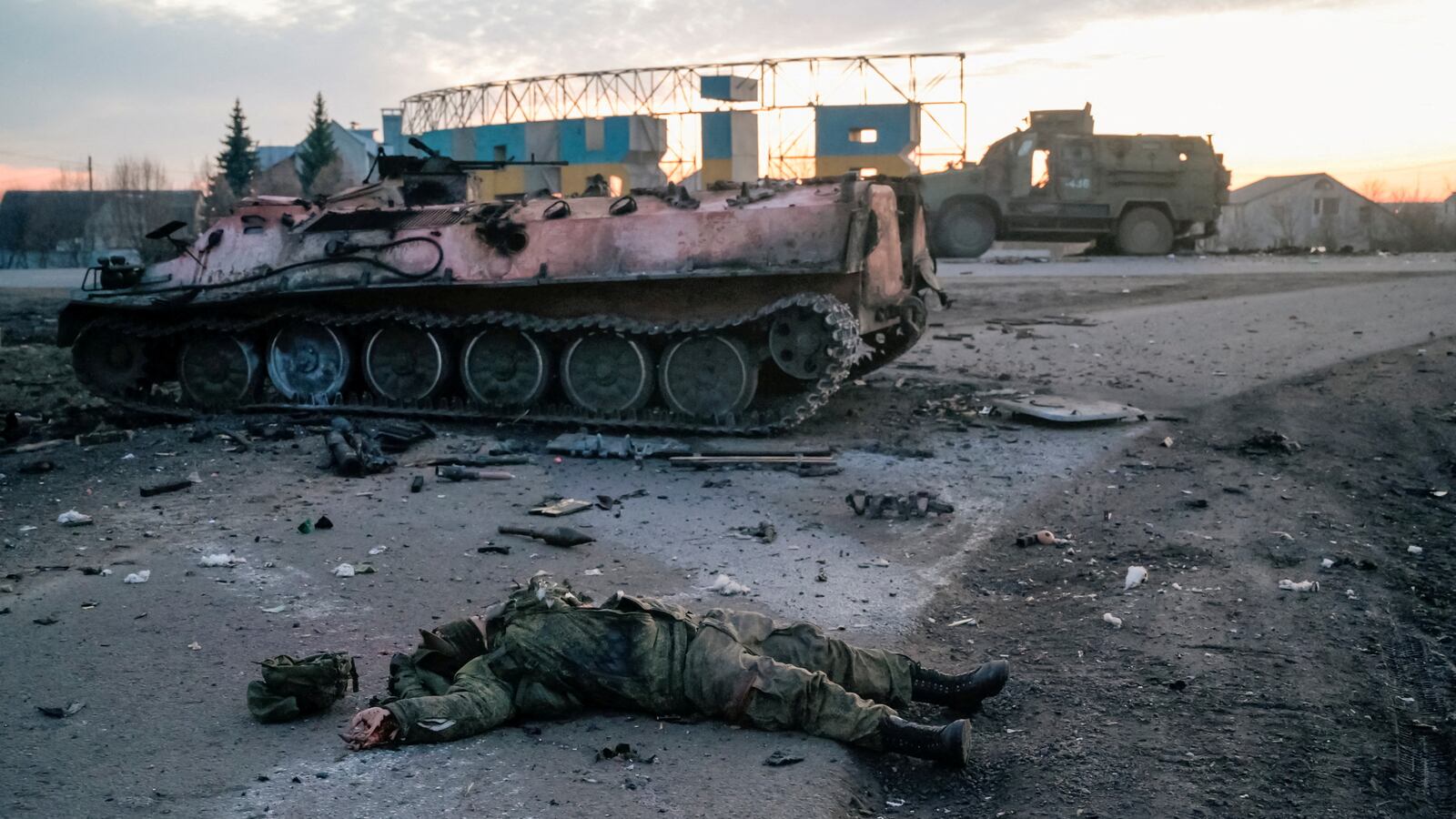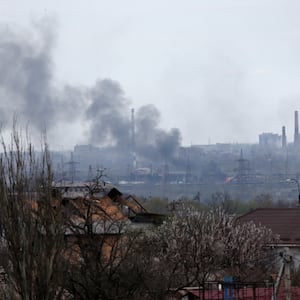Hours after the secrecy surrounding the mission into Ukraine by U.S. secretaries of state and defense was blown by Ukrainian president Volodymr Zelensky, the Pentagon weighed the risks of the operation, according to the New York Times. Antony Blinken and Lloyd Austin were already en route to Europe when Zelensky blindsided the White House by announcing what was meant to be a top-secret trip. Sending them into the brutal war zone with their cover blown could give Russia a chance to target them. Turning back could send an even stronger message: that the U.S. couldn’t protect its top diplomats against a Russian threat.
In the end, the mission was a success and emboldened the U.S. attitude to Russia, which the U.S. sees as increasingly weakened as the war ends its second month. “When it comes to Russia’s war aims, Russia is failing,” Blinken told reporters Monday morning in Poland. “Ukraine is succeeding. Russia has sought as its principal aim to totally subjugate Ukraine, to take away its sovereignty, to take away its independence. That has failed.”
Britain also went public with intelligence suggesting that phase two of Russia’s invasion of Ukraine was falling flat. The Ministry of Defense announced that “Without sufficient logistical and combat support enablers in place, Russia has yet to achieve a significant breakthrough.”
Though the White House did not confirm the three-hour visit with Zelensky and other Ukrainian officials in a bunker in Kyiv until after the men were safely in Poland, the impact of the visit bolstered Ukraine. “This was an important time to be there,” Blinken told reporters Monday. “An important time for Ukraine, for the war, and an important moment to have face-to-face conversations in detail.”
The meeting, which was held on the 60th day of the brutal war that has brought heavy loss of life on both sides, signaled continuing support by the U.S. despite consistent threats by Russia that they would attack supply chains of weapons as a valid war target. The U.S. pledged a $165 million sale of ammunition and more than $300 million in foreign military financing to Ukraine in what has been a way to skirt sending heavy weapons into the country. “The strategy that we’ve put in place—massive support for Ukraine, massive pressure against Russia, solidarity with more than 30 countries engaged in these efforts—is having real results,” Blinken said.
Zelensky has toned down the calls for a no fly zone and war planes that were a mantra of the early days of Russia’s invasion. “The priorities are weapons and support from the United States of America and our partners, European leaders, in terms of our army’s strength and support in certain areas,” Zelensky said after the American delegation left. “The second issue is the sanctions policy against the Russian Federation because of the full-scale invasion and all the terror they have committed in Ukraine.”
Austin, who expressed admiration for the Ukrainian president, said Monday that he believed Ukraine would prevail. “The first step in winning is believing that you can win,” Austin told reporters Monday. “And so they believe that we can win, we believe that they can win if they have the right equipment, the right support.”
Austin also noted Russia’s failures and predicted that they would increase. “We want to see Russia weakened to the degree that it can’t do the kinds of things that it has done in invading Ukraine,” Austin said. “It had already lost a lot of military capability and a lot of its troops, quite frankly, and we want to see them not have the capability to very quickly reproduce that capability.”
While the diplomatic mission played out, with Blinken confirming that President Biden would soon name an ambassador to work out of a newly reopened embassy in Kyiv, the war on the ground continued at fevered pace. On Sunday, hundreds of Ukrainian citizens, including children, huddled with soldiers inside a steel factory in Mariupol that has been under constant bombardment by Russian forces. But the U.K. Ministry of Defence (MOD) said that the steel plant was actually occupying many Russian troops and hindering their advances elsewhere. “Many Russian units remain fixed in the city and cannot be redeployed,” the MOD posted on Twitter. “Ukraine’s defence of Mariupol has also exhausted many Russian units and reduced their combat effectiveness.”
The MOD also noted: “Russia’s Ministry of Defence has proposed compensation payments for the families of deceased service personnel be overseen by military rather than civilian officials. This likely reflects a desire to hide the true scale of Russia’s losses from the domestic population.”







